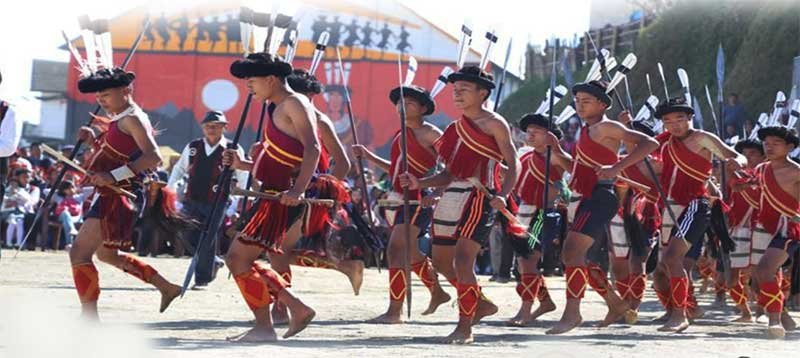Nagaland’s Sumi tribe celebrates Tuluni festival
This mid-year (July) festival is the greatest and most fervent moment for the Sumi Community of Nagaland.

Tuluni is a festival celebrated by the Sumi tribe of Nagaland to mark the beginning of agricultural season. Its vibrant colours & lively music are a reflection of the state’s rich cultural heritage. The festival starts on 8th July after a satisfying sowing of crops in the fields.
Tuluni is also called “ANNI” the word of which denotes the season of plentiful crops. This mid-year (July) festival is the greatest and most fervent moment for the Sumi Community of Nagaland.

Sumi People usually celebrate this festival with pompous gusto. The tribes of Nagaland take great efforts and pride in celebrating their harvest and seasonal festivals. People who work effortlessly in farms throughout the year relax during this festival and celebrate with delight. It is in the Sumi culture to arrange betrothal of young couples during the festival.
The remainder of the festival is celebrated in the heavy observance and execution of various age old rituals and ceremonies. Various things are prepared like rice wine and beer. Animals are slaughtered for meat which is then used in feasts and parties. People allow themselves to drink to their heart’s content.
Goblets are crafted out of plantation leaves to serve home prepared rice beer. Rice-beer is served in a goblet made with the leaf of plantain. This wine is called TULUNI. Therefore, consumption of the wine is called “TULUNI”. Gifts and ornate tokens are exchanged and appreciation is expressed. The festival celebrates the joy of people for a very fruitful season. Prayers are initiated and Gods are presented with beer prepared out of rice. Food is also given as offering on leaves.
On this festive occasion the Sumi men typically wear a circular cap made of goat’s hair and often adorned with hornbill feathers. They usually drape a red shawl around their upper torso and over one shoulder. Their lower body is covered in an apron decorated with cowrie shells and goat hair. As a nod to their head-hunter roots, they hold a spear in one hand and a dao, a kind of sword, in the other. Women typically wear headgear made of cane and goat’s hair. They drape a mekhala or rectangular piece of cloth in the form of a skirt around their lower bodies, kept in place with the help of a beaded girdle. These are typically worn with blouses.

The History of Tuluni
The festival is celebrated after the sowing season is done with and people let loose their joy over the productive season. It is a time when people share and feast. People also help the poor with gifts and food.
Tuluni festival observes the betrothal of young couples. Arrangement of wedding ties during this festival is considered ideal and is believed to bring good luck. People express rejoice through dancing and singing. Youths partake in sports and cultural dances. Folk songs are sung. Indigenous sports are organized. Necessary rituals are performed. Feasts are arranged and prayers are said. Tuluni festival is another tourism attraction within Nagaland.

The festival is celebrated over seven consecutive holidays. It is celebrated each year by different clans of the Sumi tribe in Nagaland. The festival starts on 8th July after a satisfying sowing of crops in the fields.
Originally, Tuluni festival was celebrated for seven long days. However, with a change in time, it is now observed on July 8. The Sumi tribe offers prayers to the respective gods and other spirits who are deemed to provide help in the field works during the year. They involve themselves in merry-making and eating rich food. No work is done and people take rest to get strengthened for the hard work done by them for the entire year.











